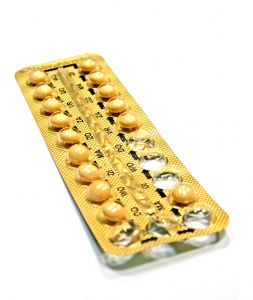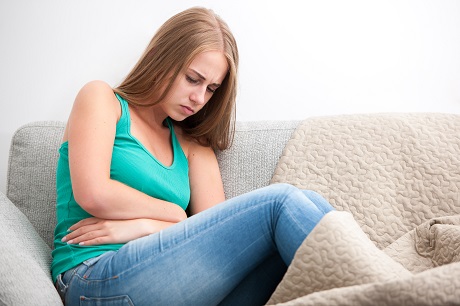A common effect of menstruation cited by women is a disturbance in their sleep. The cause for this sleep disturbance can range from a number of reasons, including the uncomfortable effects of your period such as bloating, breast tenderness, backaches, and aches and pains during the menstrual cycle. However, women frequently notice a regular disturbance in their sleep sometimes a few days before they get their period. These reports of period induced insomnia can be associated with any of the patterns of insomnia: sleep onset, or the inability to fall asleep at the beginning of the night, middle insomnia, or late/terminal insomnia.
Symptoms of Period Insomnia
Insomnia includes a set of symptoms that characterize a constant disturbance in sleep patterns. This can include extreme fatigue before and during the menstrual cycle that may be worsened by insomnia and excessive sleep disruptions. There can also be a heightened irritability as a result of being exhausted caused by sleep disruption, which can in turn increase the moodiness associated with PMS and menstruation. Insomnia also lowers your ability to concentrate as a result of sleep deprivation.
Most women experience this insomnia at varying degrees. Often, it coincides with how extreme your particular cycle is that month.
Possible Causes
While PMS related symptoms can be one attributing factor to insomnia and sleep disruption, hormonal changes during the menstrual cycle can also be a significant cause of insomnia in women.
There is a tremendous connection between sleep disturbances and the elevation of estrogen levels that surmounts during the menstruation cycle. During the follicular phase of menstruation, estrogen builds up until ovulation. During the time, there is a correlating increase in the number of sleep disturbances that women experience.
After ovulation, your progesterone levels rise which can make you feel drowsy. This is followed by a drop in estrogen and progesterone levels a few days before the start of your next period, which coincides with trouble sleeping as a result of the abrupt progesterone withdrawal.
What You Can Do
If you’re experiencing menstrual-related sleep disturbances, there are various steps you can take to help get a better night’s sleep.
Exercise: Exercise is a great way to help your body enter deep-sleep stages during rest, the kind of restorative sleep necessary for the secretion of growth hormones.
Skip the alcohol: Progesterone can exacerbate the effects of alcohol, and consuming alcohol at night can potentially cause an uneasy and disturbed sleep.
You can also use medical treatments and remedies to help alleviate some of the symptoms of PMs that may be causing an uncomfortable sleep or wakefulness. This includes both over the counter as well as prescription medicines, herbs, vitamins and supplements. Pamprin and Midol are the most common over the counter medications to help combat the unpleasant symptoms of PMS.
Prescription medications also include:
- Benzodiazepine
- Nonbenzodiazepine sedatives: includes zolpidem, eszopiclone, zaleplon
- Ramelteon: stimulates melatonin receptors
- Trazodone and amitriptyline: antidepressants that can help with insomnia
There are also many antihistamines that have sedative properties, such as Benadryl, Advil PM, and Tylenol PM which can help you fall asleep, as well as an over the counter version of melatonin.
Additionally, there are a variety of herbs and natural remedies that can be effective in treating insomnia if you don’t feel comfortable resorting to medications. Chamomile Tea and other types of tea are great for relaxing, easing the tension and make you drowsy so that you can sleep well.
Progesterone can also be prescribed, and will counteract the heightened levels of estrogen that the body creates during the cycle.
Vitamin can help deal with other symptoms of PMS that can lead to insomnia, such as nervousness, irritability, breast tenderness, and depression. It is also recommended to take 1500mg of calcium per day to help prevent mood swings that can cause insomnia. Vitamin B and Vitamin B5 are known to help alleviate street and restore estrogen levels back to their normal levels, which can aid in preventing insomnia.
Diet and lifestyle choices can also have an effect on the sleep patterns of a women during their menstrual cycle. Making sure that your body is getting its essential nutrients is important in reducing the symptoms of PMS and allowing for a comfortable night’s sleep.



